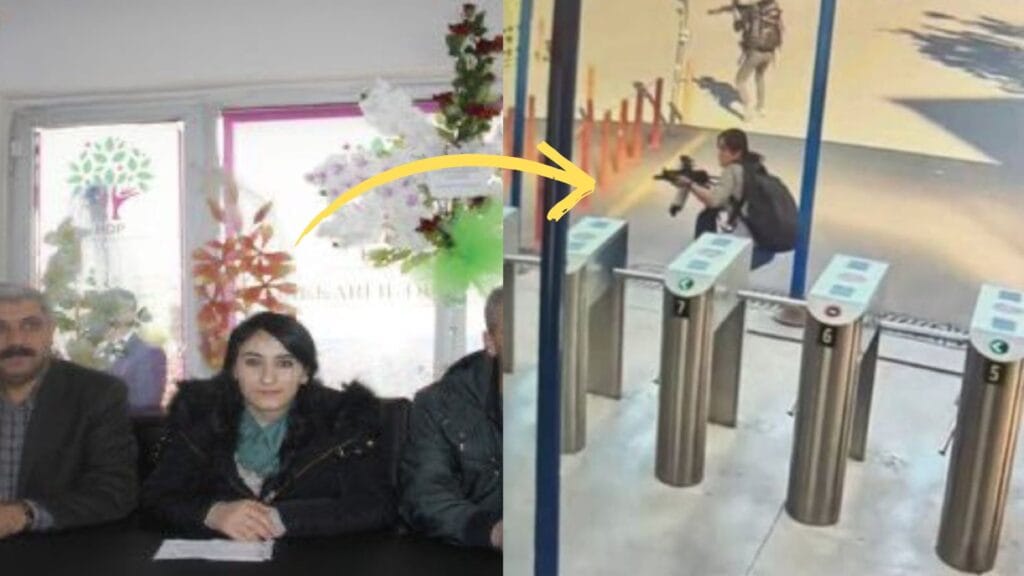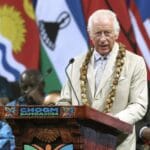Recent events in Turkey have shaken the capital, drawing greater attention to an old, complicated conflict involving the Kurdish population and Turkey’s government. A female attacker in a recent bombing near Ankara has been identified by Turkish media as Mine Sevjin Alcicek, a former member of Turkey’s pro-Kurdish Peoples’ Democratic Party (HDP). This attack, which killed five and injured numerous others, occurred at a strategic defense facility just outside of Ankara. Alcicek, accompanied by her male partner, Ali Orek-informally reported to be a member of the PKK-blowing herself and several others to smithereens entered the facility in the taxi they had hijacked, killing its driver on the way.

It was executed with instant ferocity when Alcicek and Orek, who were both armed with heavy weapons, set off explosives and started shooting at the point they were targeting. Their names and affiliations with the Kurdish Workers Party had already been confirmed by Turkish Interior Minister Ali Yerlikaya, further escalating the conflict between Turkey and the Kurdish forces in the region. The extent of such continued violence makes one wonder if there will ever be an effective end to the violence because the conflict between the PKK and the Turkish government stretches back decades, with their first skirmish set starting in the 1980s.
Turkish media reports suggest female Ankara attacker Mine Sevjin Alcicek used to be a politician with pro-Kurdish party HDP’s local branch in Hakkari around 2015 https://t.co/cBGCZCu5Cn pic.twitter.com/TaC6v4jMI1
— Ragıp Soylu (@ragipsoylu) October 24, 2024For a long time, the PKK was seeking autonomy for the Kurdish people in Turkey and was many times called a terrorist organization by Turkey and its allies. They started an armed struggle in 1984, which broadly pushed for a Kurdish state in Turkey. The conflict in the 1990s reached its climax with thousands of villages destroyed in Kurdish areas, displacing hundreds of thousands of Kurds from their homes to other regions in Turkey. While Turkey has, in the near past, maintained an unyielding stand on PKK operations, this has not stopped the organization from continuing its actions aggressively across the mountainous Kurdish territories that run through Turkey, Syria, Iraq, and Iran.
However, the latest attack somehow galvanized Turkey into making the tactical nature of its response dramatically shift from only counterbalancing homeland activities of the PKK to addressing and compelling forces that its Kurdish allies have across their border in Syria and Iraq. Reports from Syria’s war monitoring say that Turkish forces made an essential escalation by striking drone attacks and fighter jets targeting Kurdish regions in Syria. Within 24 hours, 27 civilians were killed in Syria. According to the report, 45 drone strikes and multiple strikes by fighter jets have targeted the main infrastructure including power plants and water stations. For Turkish forces, these are PKK-linked groups, and the Turkish defense ministry declares that 32 PKK-linked “terrorist targets” were struck in Iraq and Syria.
The Kurdish-led Syrian Democratic Forces (SDF), which is heavily backed by the U.S., has condemned these strikes, reporting that in one such escalation, Turkish attacks killed 12 civilians in northeastern Syria and wounded dozens more. It’s worrisome because airstrikes have landed in populated areas, bakeries, and even oil facilities. The SDF has spearheaded the fight against ISIS in Syria through winning campaigns that evicted ISIS from the region last year. For Turkey, the dominant group of the SDF, YPG, is no more than an appendage of the PKK.
As Turkey continues to launch cross-border offensives into Syria, its handling of the Kurdish forces remains very controversial. The policy on its face may appear successful in targeting particular militant Kurdish groups; however, most civilians are conspicuous casualties in the attacks. One cannot help but wonder if the aggressive military response being utilized by the Turkish military will bring any real sense of peace to the region if only it will push the divisions further, which could threaten both sides with losing the last productive human resources in the fray. And while such forceful action arguably “gets the job done,” collateral damage and continued political friction prove that lasting peace remains forever out of reach.
Therefore, with all these hard measures, one cannot stop but think of the overall strategic interests of Turkish President Erdogan. Do such operations need to be conducted for purposes of national security or is it an expression of a more general policy? The repercussions of Turkey’s military actions do not remain within borders but spill over into regional stability as well as relations with its close, international partners like the United States.
Minutes by M31GlobalNews






